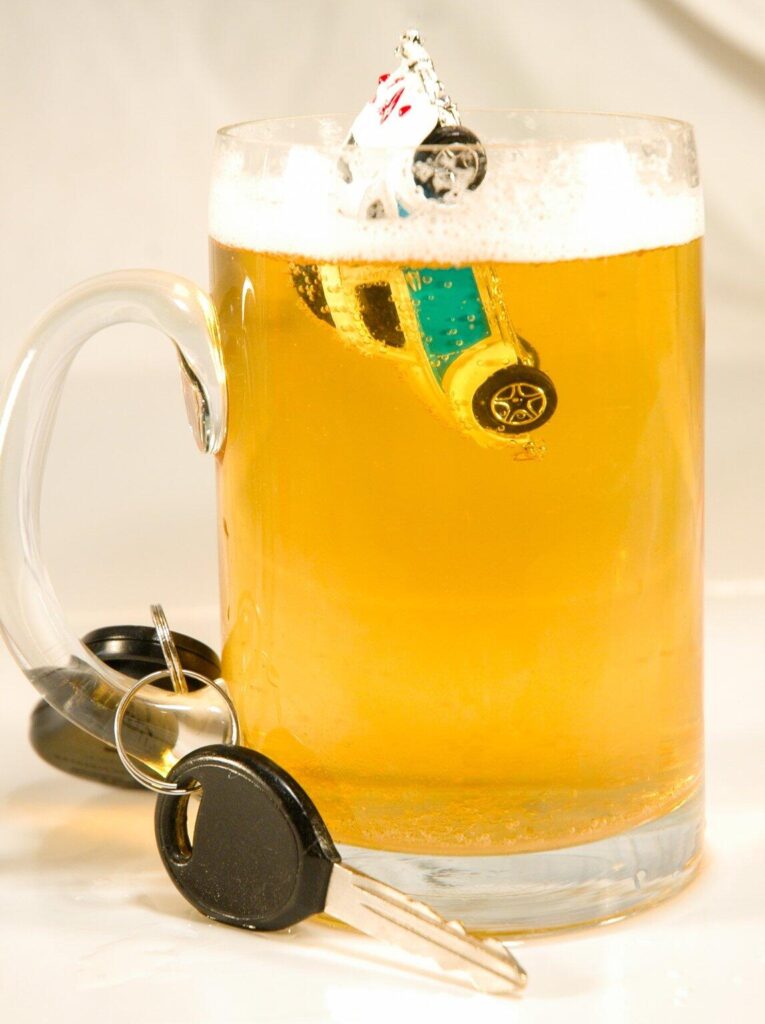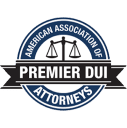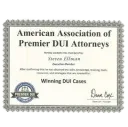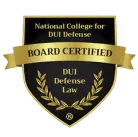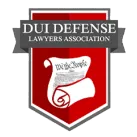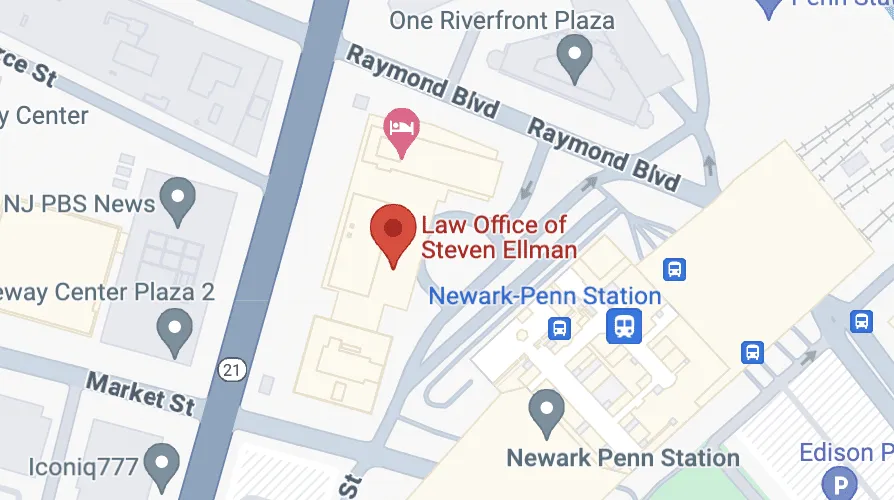A Complete Guide to NJ DWI Laws for 2025
Easily navigate and explore NJ DWI laws with our comprehensive guide. Click to stay informed and take action today!
Driving while intoxicated (DWI) is a leading cause of fatalities on U.S. roads, with the National Highway Traffic Safety Administration reporting 37 deaths daily due to drunk-driving crashes. This sobering statistic emphasizes the need for strict DWI laws across the country.
While DWI laws vary by jurisdiction, they all aim to prevent accidents and protect public safety. Read our comprehensive guide to stay informed about NJ DWI laws and understand their potential consequences.
What Is a DWI in New Jersey?
DWI in New Jersey means operating a vehicle under the influence of alcohol or drugs, making you a danger to yourself and others on the road. If your Blood Alcohol Content (BAC) reaches 0.08% or higher, you’re considered legally intoxicated, and you could face serious penalties.
However, different limits may apply depending on who you are:
- General limit: A BAC of 0.08% or higher is considered over the legal limit
- Commercial drivers: These drivers face stricter regulations, with a 0.04% BAC limit due to your job responsibilities
- Underage drivers (under 21): New Jersey follows a zero-tolerance policy for young drivers, meaning a BAC of 0.01% or higher can result in a DWI charge
Your BAC is just one factor influencing a DWI charge. Other things, such as your behavior on the road, your appearance, and your ability to perform field sobriety tests, can all impact whether you’re charged with a DWI.
Familiarity with NJ DWI laws can help you navigate these rules and avoid serious consequences if you ever face DWI charges.
NJ DUI vs DWI Differences
While the terms DWI (Driving While Intoxicated) and DUI (Driving Under the Influence) are often used interchangeably, there are key differences between the two. Understanding these distinctions is crucial for protecting your New Jersey driving record and staying informed about the laws that could impact your future.
DWI: Driving While Intoxicated
DWI refers specifically to driving under the influence of alcohol. If your Blood Alcohol Content (BAC) is 0.08% or higher, you are considered intoxicated and can be charged with DWI. This charge is based on alcohol consumption, and penalties can include fines, license suspension, and even jail time, depending on the severity of the offense.
DUI: Driving Under the Influence
DUI, on the other hand, involves driving under the influence of drugs –whether legal, like prescription medication, or illegal substances. Even over-the-counter drugs that impair your ability to drive can lead to a DUI charge.
New Jersey law treats drug-related impairments seriously. You can be charged with a DUI even if your BAC is below the legal alcohol limit, as long as there’s evidence of drug impairment.
Key Differences:
- Substance involved: DWI is alcohol-related, while DUI is related to drug use.
- Penalties: the methods used to detect impairment differ, especially with drug testing in DUI cases.
Note that both offenses carry serious consequences.
Possible Penalties for Breaking NJ DWI Laws
Getting charged with a DWI in New Jersey is no small matter. The state imposes strict penalties to discourage alcohol-impaired driving and protect road safety. Understanding these New Jersey DWI penalties allows you to better prepare for what’s ahead if you or a loved one is facing a DWI charge.
DWI offense consequences NJ depend on the severity of the offense and whether you are a first-time or repeat offender. Below are the penalties for first, second, and third offenses, as well as other consequences you may face under NJ drunk driving laws.
First Offense Penalties
Even if it’s your first time being charged with a DWI, the penalties can still be quite severe:
- Fines: You’ll face fines ranging from $250 to $400, depending on the circumstances of your offense
- Jail Time: A first-time DWI can result in up to 30 days in jail
- License Suspension: You may lose your driving privileges for 3 months
- Intoxicated Driver Resource Center (IDRC): You’ll be required to attend IDRC, a program that aims to educate and prevent future offenses
These penalties underscore the seriousness with which New Jersey treats DWI offenses, even for first-time offenders.
Second Offense Penalties
For a second DWI within 10 years, the consequences increase significantly:
- Increased Fines: Fines can range from $500 to $1,000
- Longer Jail Time: You could spend up to 90 days in jail
- Extended License Suspension: Your driver’s license will be suspended for 2 years
- Ignition Interlock Device: You’ll need to install an ignition interlock device on your vehicle for 1 to 3 years, even after you get your license back
This device prevents your car from starting if alcohol is detected on your breath.
Third Offense Penalties
A third DWI offense within 10 years carries the most severe penalties:
- Heavier Fines: Expect to pay up to $1,000 in fines
- Jail Time: You’ll face a mandatory 180 days in jail
- Loss of Driving Privileges: Your license can be suspended for 10 years
These harsh penalties reflect the state’s zero-tolerance approach to repeat DWI offenders and aim to deter individuals from repeatedly driving under the influence.
Consequences for Refusing a Breathalyzer Test
Refusing to take a breathalyzer test when pulled over is not a way to avoid punishment. In fact, it carries its own set of penalties under NJ drunk driving laws:
- License Suspension: Refusal can result in an automatic license suspension of 7 months to 1 year, even for a first offense.
- Fines: You’ll also face fines ranging from $300 to $500.
In some cases, you’ll be required to install an ignition interlock device.
Other Penalties
Besides fines and license suspensions, other penalties can impact your life after a DWI:
- Insurance Surcharges: Your car insurance premiums will rise dramatically, and you’ll have to pay an annual surcharge of $1,000 to $1,500 for 3 years
- Community Service: You may be required to perform court-ordered community service as part of your sentence
- Alcohol Education Programs: Courts often mandate that offenders attend alcohol education programs to address the root of the problem
The harsh penalties aim to deter individuals from repeatedly driving under the influence. Ensure you attend all community service penalties.
Legal Defense for NJ DWI Charges
Facing a DWI charge in New Jersey can feel overwhelming. However, always remember that you have various options for defending yourself. Building a strong legal defense can help you protect your rights and reduce the potential consequences of DWI charges.
Here are some common defenses that can be used to challenge DWI charges in New Jersey:
Challenging the Traffic Stop
One of the most common defenses involves questioning the validity of the initial traffic stop. In New Jersey, the police must have a legitimate reason to pull you over, such as:
- Tailgating
- Exceeding speed limits
- Improper lane usage
- Running red lights
If there was no valid reason for the stop, your attorney can argue that any evidence collected afterward, including breathalyzer results, should be dismissed.
Questioning the Accuracy of BAC Tests
Breathalyzer and blood tests provide crucial evidence for proving DWI charges. However, these tests aren’t always 100% accurate. Several factors, such as improper calibration of the breathalyzer machine or testing irregularities, can lead to incorrect Blood Alcohol Content (BAC) readings.
If there’s doubt about the accuracy of the test, your lawyer can use this to question the strength of the prosecution’s case.
Field Sobriety Test Errors
Field sobriety tests, such as walking in a straight line or balancing on one leg, are often used by officers to determine if you’re intoxicated. But these tests are subjective and can be affected by factors like:
- Age
- Fatigue
- Anxiety
- Poor lighting
- Uneven surfaces
Your DWI attorney can argue that the results of these tests don’t accurately reflect your level of intoxication, especially if you have a health issue or injury.
Medical Conditions or Prescription Medications
Sometimes, medical conditions or medications can cause symptoms that mimic intoxication. For example, conditions like diabetes or acid reflux can affect breathalyzer readings. Medications that cause drowsiness or affect balance can also lead to poor performance on sobriety tests.
If you have a medical condition that could explain your behavior, this defense can be crucial.
Improper Police Procedures
New Jersey law requires police officers to follow strict procedures during a DWI arrest, including reading you your rights and ensuring that breathalyzer tests are conducted properly. If the arresting officer failed to follow proper protocol, your attorney may argue that this violates your rights and that the case should be dismissed.
Lack of Probable Cause for Arrest
Even if the police had a valid reason to stop you, they must also have probable cause to arrest you for a DWI. If there’s no substantial evidence of alcohol’s effects on the body, such as blurred vision, slurred speech, nausea, or vomiting, your DWI lawyer can argue that the officer lacked probable cause for the arrest.
Seek Professional Legal Representation When Facing DWI Charges in New Jersey
Navigating NJ DWI laws can be complex. An experienced attorney is essential for challenging evidence, questioning police procedures, and protecting your rights. Whether it’s reducing penalties, keeping your license, or having the charges dropped, your legal defense will impact your future after a DWI charge.
With nearly four decades of experience, The Law Office of Steven Ellman is your trusted advocate for DUI and serious traffic violation cases throughout Northern, Central, and Southern New Jersey. Don’t face NJ DWI charges alone.
Reach out today for a free consultation.

